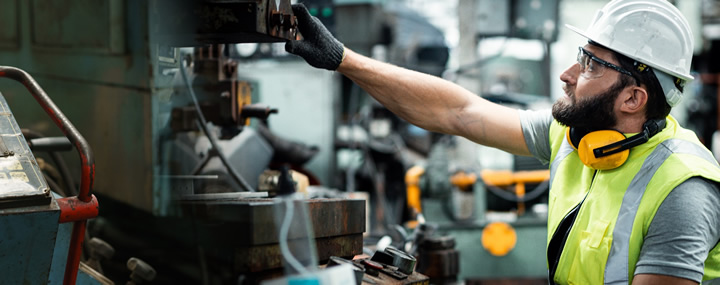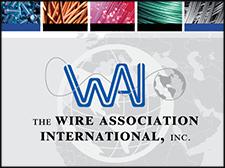The Benefits of MOM & MES and Why the Differences Matter

Manufacturing Operations Management and Manufacturing Execution Systems play a vital role in the workflow for many manufacturing firms around the globe, but there are still many within the sector who still confuse the two. Mike Bradford Strategic Business Development Director at DELMIA, takes a closer look at some of the biggest differences between MES and MOM, and why these differences are critical to manufacturing success.
What is the Difference between MES and MOM?
A lot of people use those terms interchangeably, but they don't mean the same thing. For instance, Manufacturing Execution System (MES) is a core component of the overall DELMIA Manufacturing Operations Management (MOM) scope. MES refers to guiding the operator in production tasks to be done, collecting genealogy data as products are produced, and collecting production data in real time.
This data makes it possible for companies to optimize production activities from product creation to final production. MES can be considered a component of MOM. Think about gaining visibility and control over shop floor execution. Its primary purpose is to monitor, manage, and optimize the day-to-day processes inside the facility using data. Precision and efficiency are key benefits of MES, as it provides real-time data and guides the operator in the production tasks, allowing for a smooth flow of operations at the shop floor level.
On the other hand, MOM, with its broader scope, provides a comprehensive outlook on the entire manufacturing operation. It integrates various elements such as quality, logistics, warehouse and materials, time and labor, and maintenance into the overall process. This feature allows for a holistic management approach, making MOM particularly beneficial for businesses seeking to optimize multiple aspects of their operations simultaneously.
Furthermore, MOM offers the advantage of scalability, providing global enterprise support. This means it can be set up at one plant, and then replicated across multiple plants, facilitating consistent processes across various locations. This is particularly beneficial for larger companies operating at multiple sites who want to ensure consistent processes and best practices across the entire enterprise.
The Benefits of Manufacturing Execution Systems
MES brings several key advantages to the manufacturing environment:
- Real-Time Data Collection: MES enables real-time data collection and analysis, enhancing decision-making and operational efficiency.
- Standardization of Production Processes: MES helps to standardize production processes within a facility, leading to improved product consistency and overall efficiency.
- Integration with ERP Systems: MES seamlessly integrates with Enterprise Resource Planning (ERP) systems, facilitating smooth information flow across different levels of the organization.
- Reduced Operational Costs: By streamlining processes, eliminating waste and facilitating lean programs, MES can significantly reduce operational costs.
How MOM Benefits Overall Manufacturing Operations Efficiency
In addition to the advantages provided by MES, MOM offers several key benefits that contribute to the overall efficiency and effectiveness of manufacturing operations.
Improved Decision Making: With the integration of Real-time data, MOM aids in informed and accurate decision-making, reducing errors and increasing operational efficiency.
Enhanced Quality Control: MOM systems integrate quality control in the manufacturing process, ensuring consistent product quality and reducing waste.
Optimized Resource Utilization: By providing a comprehensive view of all operations, MOM allows for optimal allocation of resources, thus reducing costs.
Increased Scalability: MOM systems can be configured at one plant and replicated across multiple plants, ensuring consistent processes and facilitating growth.
Enhanced Compliance: MOM systems can help ensure compliance with industry standards and regulations, reducing the risk of non-compliance penalties.
Why MOM and MES Matter
Understanding the benefits of both MOM and MES is crucial for businesses looking to optimize their manufacturing operations. MOM plays a comprehensive role in managing all aspects of manufacturing operations, while MES focuses on the granular control needed at the shop floor level.
MOM and MES are not mutually exclusive; instead, they can work synergistically to take manufacturing operations to new heights. By integrating MES into an existing MOM solution, businesses can experience a vast reduction in inventory, waste, and overall inefficiencies.
The choice between MOM and MES ultimately depends on the specific needs and goals of the manufacturing operation. The key is to understand the unique benefits and roles of each, and how they can be leveraged to achieve operational efficiency, improved decision making, and enhanced quality control.
 The growing market for MOM and MES systems, predicted to reach $15.21 billion by 2026, underscores their importance in the manufacturing sector. This growth is driven by the increasing adoption of industrial IoT and the move towards Lean and continuous improvement programs.
The growing market for MOM and MES systems, predicted to reach $15.21 billion by 2026, underscores their importance in the manufacturing sector. This growth is driven by the increasing adoption of industrial IoT and the move towards Lean and continuous improvement programs.
To summarize, MOM and MES matter because they provide the tools necessary for businesses to optimize their manufacturing processes and gain a competitive edge in today's fast-paced, technology-driven manufacturing landscape.
Comments (0)
This post does not have any comments. Be the first to leave a comment below.
Featured Product

